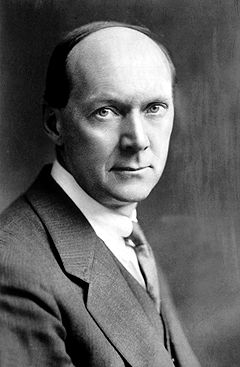This article was originally published in Maclean's Magazine on April 17, 1995
Book Review: Reform Party
Waiting for the Wave: The Reform Party and Preston Manning By Tom Flanagan (Stoddart, 245 pages, $22.95)
He is a great admirer of Václav Havel, the left-leaning playwright and president of the Czech Republic. He favors amending the Canadian Human Rights Act to include protection for gays and lesbians. He believes that Canadian prime ministers should be bilingual and, because of that, he began last spring, at age 52, to take French lessons. Could this really be the man Deputy Prime Minister Sheila Copps once likened to the American white supremacist David Duke? Or the one Newt Gingrich, the archconservative Speaker of the U.S. House of Representatives, recently hailed as an ideological soul mate?
As this insightful book by University of Calgary political scientist Tom Flanagan details, Preston Manning defies the stereotypes that his critics and even some of his admirers are wont to impose on him. Far from being a doctrinaire conservative, writes Flanagan, the Reform leader is a populist who "rarely condemns ideas or ideologies as being false or harmful in their own right." Flanagan, who has long advocated that Reform adopt a more coherently conservative line, reports these findings with a clear sense of dismay. Manning, he suggests, may be just too moderate and flexible to fulfil the role of Newt-of-the-North.
Flanagan brings a unique perspective to his subject. After joining the party in 1990, he worked closely with Manning as a policy and strategy adviser for more than two years. But following several private and public disagreements - most memorably over the choice of Rick Anderson, a seasoned Ottawa political operative and a former Liberal, as the party's campaign director for the 1993 election - Manning fired Flanagan in July, 1993. Drawing on private conversations and meetings, the author is able to shed new light on the enigmatic Manning. But Flanagan, who remains a member of the party, is no starry-eyed acolyte. He has come neither to praise nor to bury Manning, which is why this is the most objective book yet written about the Reform leader.
Flanagan helps to explode some popular myths that have developed since the Reform party began in 1987. One of them is that Manning, who is an evangelical Christian, is out to impose his religious views on Canadians. In all of the policy discussions in which he participated at Reform's head office in Calgary, writes Flanagan, religion never played a role. Moreover, the party's preference is that MPs should vote on moral issues according to the wishes of their constituents. For example, after consulting his Calgary Southwest riding, Manning has said that he will probably vote in favor of legalizing assisted suicide - even though he is personally opposed to the practice.
Another misconception, says Flanagan, is that Manning secretly longs for Quebec to secede so that he can become prime minister of what remains of Canada. There are no doubt some Reformers who lust for this scenario, but Manning is not among them. He appears to believe, however naïvely, that Reform's vision of a decentralized nation made up of 10 equal provinces can have strong appeal to Quebecers. "He sees himself," writes Flanagan, "as ultimately becoming the leader of a pan-Canadian Reform party including a strong contingent of francophones from Quebec."
Flanagan also provides some fascinating glimpses into Manning's leadership style. The Reform leader writes most of his own speeches and is often loath to delegate even the most mundane tasks. At the same time, he is a shy and essentially solitary man who seeks to avoid conflict and confrontation - and who, according to Flanagan, starts to stutter slightly when the stress level gets too great.
Manning's aversion to open conflict may help to explain his lacklustre performance as an opposition leader. But Flanagan suggests a deeper reason, one that has escaped the notice of other commentators. Manning's initial exposure to politics came through his father, Ernest Manning, who served as the Social Credit premier of Alberta from 1943 to 1968, with little opposition. And before being elected in 1993, the younger Manning had never served in a legislature or worked for a party in opposition. The Reform leader, says Flanagan, has his eyes fixed on the big prize: the prime ministership. Being an opposition leader interests him about as much as it did Pierre Trudeau.
Will Manning ever be prime minister? Not if Flanagan gets his way. The Calgary academic is just one of several well-known Reformers (Calgary West MP Stephen Harper and Alberta Report founder Ted Byfield being two others) who want the party to tilt more decisively to the right. They tout the recent success of Gingrich and his so-called Republican revolution - while glossing over the fact that Canadians have shown little inclination to embrace extremists of either the left or the right. But given that the majority of Reformers, including many of the party's other 51 MPs, appear to be more conservative than their leader, the ideologues may yet prevail. In that event, Reform will likely become an NDP of the right: a party of principle that, at times, exerts considerable influence on the national political agenda, but has little chance of governing. That may not be such a bad thing. But as Flanagan himself points out, it is not the kind of party that Preston Manning has any interest in leading.
Maclean's April 17, 1995

 Share on Facebook
Share on Facebook Share on X
Share on X Share by Email
Share by Email Share on Google Classroom
Share on Google Classroom

